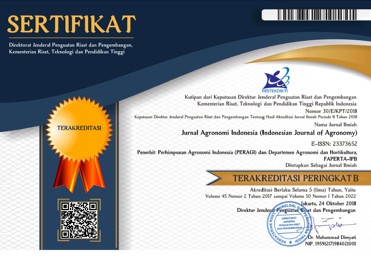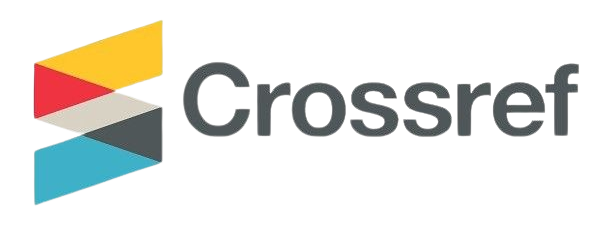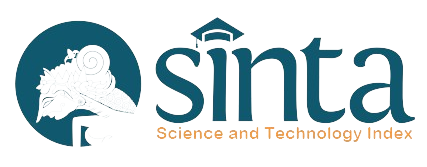Aplikasi Plant Growth Promoting Rhizobacteria dalam Meningkatkan Produktivitas Bawang Merah di Lahan Pasir Pantai
Abstract
The use of Plant Growth Promoting Rhizobacteria (PGPR) is one of the most effective techniques to improve fertility of sandy coastal lands. The purpose of this research was to obtain the most effective isolate of PGPR for the growth of three shallot cultivars in the sandy coastal land. The research was conducted in August-November 2015 at Samas sandy coastal land, Bantul. The two-factor treatments were assigned in a randomized complete block design with three replications. The first factor was shallot cultivars, consisted of Crok, Tiron, and Tuk-tuk, while the second factor was the PGPR suspension, i.e. control (without PGPR), PGPR BP25.2 isolate (Bacillus methylotrophicus), BP25.6 isolate (Bacillus amyloliquofaciens), BP25.7 isolate (Bacillus subtilis), BrSM 4 isolate (Burkholderia cepacia), and BrSG 5 isolate (Burkholderia seminalis). The results showed that all PGPR isolates tested had the ability to produce IAA, with the highest amount of IAA concentration produced by BrSG 5 isolate (Burkholderia seminalis) combined with the three cultivars (22.46 mg kg-1, 28.61 mg kg-1, 41.41 mg kg-1). BP25.2 isolate (Bacillus methylotrophicus) effectively induced N (0.05%), whereas BP25.7 isolate (Bacillus subtilis) effectively induced P (0.22 ppm).
Keywords: Bacillus, bacteria, marginal land












